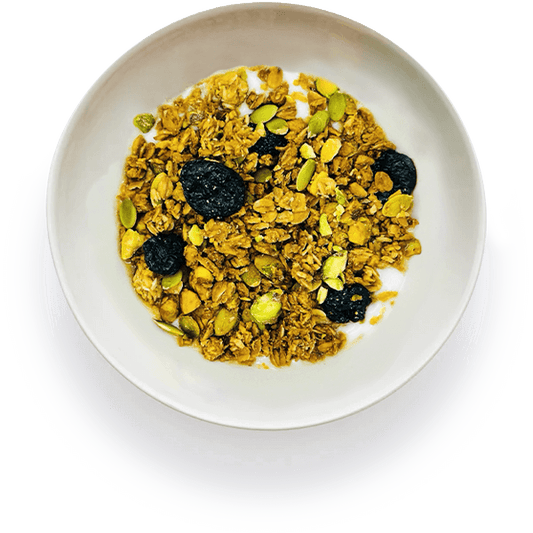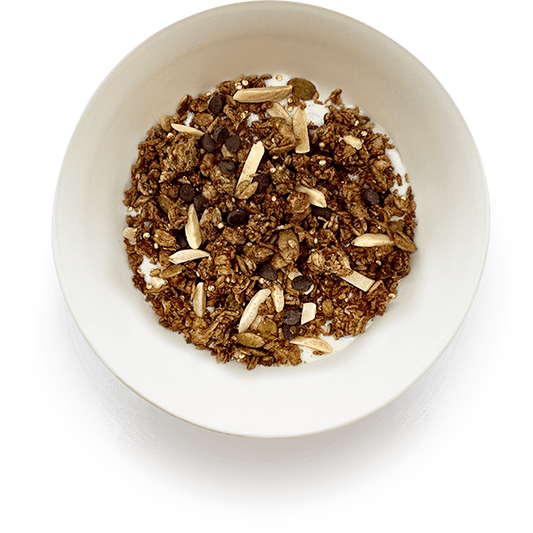Step Into Health: Transitioning to Plant-Based Eating
By FireRoad
Overview
Transitioning to a plant-based diet can improve your health, aid in weight management, and reduce environmental impact. Start gradually by incorporating more plant-based meals, educate yourself on nutrition, and explore flavorful recipes. Stock your pantry with staples, overcome cravings with alternatives, and seek community support. Embrace this lifestyle change as a journey filled with discovery and delicious food options.
Transitioning to a plant-based eating lifestyle can be a transformative journey towards better health and vitality. Whether you are motivated by personal health goals, environmental concerns, or ethical considerations, adopting a plant-based meal plan offers a wealth of benefits. In this article, we will explore practical tips and strategies to make your transition smooth, enjoyable, and packed with flavor. From understanding the nutrients you need to finding delicious alternatives for your favorite meals, let's embark on this exciting culinary journey together!
Understanding the Basics of Plant-Based Eating
Before diving into the transition, it’s important to define what plant-based eating means. Essentially, it entails consuming primarily foods derived from plants, including fruits, vegetables, whole grains, legumes, nuts, and seeds. While some people may choose to eliminate animal products entirely, others may adopt a more flexible approach known as a "plant-based diet." This means you can still enjoy occasional animal products while focusing mainly on plants.
Why Go Plant-Based?
There are plenty of reasons to consider a plant-based meal plan. Here are a few key benefits:
- Improved Health: Plant-based diets are rich in nutrients, antioxidants, and vitamins that can contribute to better overall health. Research suggests that such diets can help reduce the risk of chronic diseases.
- Weight Management: Many people find that they naturally maintain a healthy weight on a plant-based diet due to its high fiber content, which keeps you feeling full and satisfied.
- Environmental Benefits: Reducing your consumption of animal products can significantly lower your carbon footprint and contribute to a more sustainable planet.
- Ethical Considerations: Many individuals adopt plant-based eating due to concerns for animal welfare and ethical food sourcing.
Getting Started: Tips for Your Transition
While transitioning to a plant-based meal plan can feel daunting, these tips can help you make the shift with ease:
1. Educate Yourself
Knowledge is power! Familiarize yourself with the essential nutrients required in a plant-based diet. Key ingredients include:
- Protein: Contrary to common myths, a plant-based diet can provide ample protein through sources like beans, lentils, quinoa, nuts, and seeds.
- Vitamins and Minerals: Pay attention to vital nutrients such as Vitamin B12, Omega-3 fatty acids, iron, and calcium. You may need to incorporate fortified foods or supplements to meet these needs.
2. Start Slow
Transitioning doesn’t have to happen overnight. Start by integrating more plant-based meals into your diet gradually. For example, designate one day a week as a “Meatless Monday,” where you experiment with plant-based recipes.
3. Explore Flavorful Recipes
Many people fear that plant-based eating means compromising on flavor. This couldn’t be further from the truth! The world of plant-based cuisine is rich with variety. Explore resources like cookbooks and online recipe blogs that focus on creating delicious plant-based meals packed with vibrant flavors. Look for recipes that feature:
- Spices and herbs to enhance flavor
- Fresh vegetables mixed in unique ways
- Whole grains that bring texture to your meals
4. Meal Preparation Is Key
Investing time in meal preparation will save you when facing a busy schedule. Consider dedicating a day each week to meal prep. Prepare versatile components, like roasted veggies, legumes, and grains that you can mix and match throughout the week. This ensures you always have healthy options readily available.
Stocking Your Pantry with Plant-Based Staples
Transforming your eating habits starts with nutritious ingredients. Here’s a list of staples to keep in your pantry:
- Whole Grains: Brown rice, quinoa, oats, and whole grain pasta
- Legumes: Lentils, chickpeas, black beans, and kidney beans
- Nuts and Seeds: Almonds, cashews, chia seeds, and flaxseeds
- Healthy Fats: Avocado oil, olive oil, and plant-based nut butters
- Fresh Produce: A colorful array of fruits and vegetables to ensure you consume a wide range of nutrients
Overcoming Common Challenges
Transitioning to a plant-based diet may come with some hurdles. Here are a few common challenges and how to overcome them:
Cravings for Animal Products
It’s natural to crave familiar foods, especially if you’ve been eating them for years. When those cravings strike, look for plant-based alternatives that mimic your favorite meals. For example, if you miss burgers, try a black bean or chickpea patty. Many dishes can be easily adapted to incorporate plant-based ingredients without sacrificing flavor.
Social Situations
Dining out or attending social events can pose challenges, particularly when choices are limited. Here are some tips to navigate these situations:
- Before you go out, scout restaurants to identify ones with plant-based meal options.
- Consider contacting the restaurant in advance to see if they can accommodate your dietary needs.
- Don’t hesitate to bring a plant-based dish to share at gatherings, which can help showcase the flavors and nutrients of plant-based cuisine.
Ensuring Adequate Nutrients
As mentioned earlier, a well-balanced plant-based diet should include all essential nutrients. You can combat deficiencies by:
- Incorporating a variety of food sources into your meals.
- Consulting with a registered dietitian for personalized guidance.
- Regularly checking your nutrient levels through blood tests, if necessary.
Finding Community Support
Transitioning to a plant-based lifestyle can be easier when you have support. Seek out communities online or locally where you can share experiences, recipes, and tips. Social media platforms like Instagram and Facebook host vibrant groups focused on plant-based eating. Joining a community can inspire you to stick to your goals while continuously discovering new flavors and nutrition.
Experimenting with New Ingredients
Part of the joy of transitioning to a plant-based meal plan is discovering new tastes and textures. Don’t hesitate to experiment with ingredients you may not be familiar with:
- Nutritional Yeast: Adds a cheesy flavor, perfect for sauces and seasonings.
- Tempeh and Tofu: Excellent sources of protein that can take on various flavors depending on how they are prepared.
- Spaghetti Squash: A fantastic alternative to pasta that adds a new dietary dimension.
Get Creative with Plant-Based Meal Prep
Meal prepping doesn’t have to be mundane! Here are a few creative meal prep ideas to keep your plant-based diet exciting:
- Build-Your-Own Bowls: Prepare a base of grains, a variety of roasted vegetables, and proteins from legumes or tofu. Don’t forget to include a tasty dressing!
- Wrap it Up: Utilize collard greens or whole-grain wraps filled with your favorite veggies, legumes, and hummus for a healthy on-the-go meal.
- Soup and Stew: These hearty meals are great for batch cooking and can easily incorporate an array of vegetables and legumes.
Embracing a Lifelong Journey
Transitioning to a plant-based diet is not merely a fleeting change; it’s a lifestyle choice that invites exploration and discovery. While you may face challenges initially, it’s crucial to maintain a positive outlook. Celebrate small victories—trying a new recipe or discovering a delicious plant-based meal can encourage you to stick to your goals. The flavors and nutrients that come from choosing plants can enhance not just your meals but your overall quality of life.
As you embark on this flavorful journey, remember that every small step matters. Each time you choose a plant-based meal, you're investing in your health, the environment, and a more ethical way of living. Enjoy the flavors, embrace the nutrients, and relish in the healthy changes that come your way. Your body and the planet will thank you!
Linked Product

Coconut Red Curry Tofu
Coconut Red Curry Tofu offers a nutritious plant-based meal option, featuring a blend of creamy coconut milk, peanut butter, and a variety of vegetables alongside lightly roasted tofu. Each container provides 44g of protein while maintaining a low-carb profile, making it suitable for those focused on performance and recovery. This dish is free from grains, dairy, and GMOs, catering to various dietary preferences.
View Product










